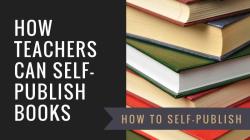Is it hard to get a poetry book published?
Getting a poetry book published can be challenging due to several factors, including the niche nature of the genre and the competitive publishing landscape. Here are some challenges authors may face and strategies to overcome them:
Challenges:
Limited Market Appeal:
- Poetry has a more niche audience compared to mainstream genres, making it challenging to attract publishers looking for broader market appeal.
High Competition:
- The literary market is competitive, and publishers receive numerous poetry submissions. Standing out among the submissions is a significant challenge.
Subjectivity of Publishers:
- Literary tastes are subjective, and what appeals to one publisher may not resonate with another. The personal preferences of editors play a role in the selection process.
Establishing a Reputation:
- For emerging poets without a well-established reputation, it can be challenging to capture the attention of publishers who may prioritize established or award-winning poets.
Traditional vs. Self-Publishing Dilemma:
- Deciding whether to pursue traditional publishing or self-publishing can be a dilemma. Traditional publishing may be harder to secure, while self-publishing requires more personal investment and marketing efforts.
Strategies:
Refine Your Craft:
- Focus on honing your poetic skills. Attend workshops, join writing groups, and seek constructive feedback to improve the quality of your work.
Research Publishers:
- Thoroughly research publishers that specialize in poetry. Identify those who have a history of publishing works similar to yours. Tailor your submissions to publishers whose preferences align with your style.
Build a Strong Portfolio:
- Develop a strong portfolio by submitting individual poems to literary magazines and journals. Published poems can serve as a testament to your writing abilities when approaching publishers.
Submit to Literary Magazines:
- Submitting poems to literary magazines and journals can increase your visibility and credibility. Many publishers look for poets with a track record of published works.
Attend Writing Conferences:
- Attend writing conferences and literary events to network with publishers, editors, and fellow poets. Building connections within the literary community can open doors to publishing opportunities.
Agent Representation:
- Consider seeking literary representation from a literary agent. Agents can advocate for your work, guide your submissions, and have connections within the publishing industry.
Submit to Contests:
- Poetry contests can be a way to gain recognition and catch the attention of publishers. Winning or being shortlisted in reputable contests can enhance your visibility.
Create an Author Platform:
- Build an online presence through a personal website, blog, or social media. A well-established author platform can attract publishers and demonstrate your commitment to promoting your work.
Persistence and Patience:
- Rejections are part of the publishing process. Be persistent, continue refining your craft, and keep submitting your work. Success may come with patience and perseverance.
Consider Self-Publishing:
- If traditional publishing proves challenging, consider self-publishing. This option provides more control over the publishing process, but effective marketing is crucial for success.
Remember that the path to publishing a poetry book can vary for each poet. Adapt your strategies based on your goals, preferences, and the unique aspects of your work. With determination, a strong portfolio, and strategic submissions, you increase your chances of getting your poetry book published.
Navigating the Maze: Publishing Your Poetry Book
Getting a poetry book published can be both an exhilarating and challenging journey. While the path might seem daunting, understanding the hurdles and opportunities can equip you with the knowledge and strategies to increase your chances of success.
1. The Challenge:
- Highly Competitive Market: With thousands of manuscripts vying for limited spots, securing a publishing deal requires a standout manuscript and strong representation.
- Subjective Evaluation: Editors face personal taste and market considerations, making the acceptance process inherently subjective and unpredictable.
- Shifting Industry Dynamics: Traditional publishing is evolving, with smaller presses and self-publishing options gaining traction. Understanding the current landscape is crucial.
2. Factors Affecting Difficulty:
- Manuscript Quality: A polished, well-edited manuscript with a distinct voice and compelling themes stands out from the crowd.
- Market Relevance: Aligning your poetry with current trends or addressing niche needs can increase appeal to publishers.
- Author Platform and Representation: Having a strong online presence, literary connections, or an agent can significantly increase your visibility.
- Genre and Style: Some genres (e.g., contemporary) generally have wider appeal compared to more experimental forms.
3. Strategies for Success:
- Refine Your Manuscript: Seek feedback from experienced poets, writing groups, or editors to ensure your work is polished and error-free.
- Research Publishers and Editors: Identify presses aligned with your genre and style, and research the specific submission guidelines of editors you admire.
- Build Your Platform: Cultivate an online presence, engage with the poetry community, and participate in readings and literary events.
- Consider Representation: A literary agent can advocate for your work and negotiate with publishers on your behalf.
- Explore Alternative Routes: Self-publishing offers more control but requires marketing and distribution expertise. Hybrid models can exist between traditional and self-publishing.
4. Publishing Trends and Preferences:
- The Demand for Diversity: Publishers increasingly seek voices from underrepresented communities and perspectives that challenge the status quo.
- Genre Fluidity: Genre-bending and experimentation are gaining traction, offering poets more creative freedom.
- Focus on Quality and Engagement: Editors prioritize high-quality writing and evidence of a dedicated and engaged author fanbase.
- Digital Formats: E-books and audiobooks are expanding the market reach of poetry books.
5. Navigating the Process:
- Stay Patient and Persistent: Rejections are part of the journey. Learn from feedback, improve your work, and keep submitting to relevant publishers.
- Network and Build Relationships: Connect with other poets, attend conferences, and participate in workshops to build your network and gain insights.
- Stay Informed: Keep abreast of industry trends, attend publishing panels, and read literary magazines to stay up-to-date on current preferences.
- Focus on the Craft: Remember, writing powerful poetry is the foundation of everything. Continue honing your skills and exploring your voice.
Getting your poetry book published requires dedication, strategic planning, and resilience. By understanding the challenges, developing strong writing skills, and navigating the process with persistence and resourcefulness, you can increase your chances of securing publication and sharing your voice with the world.






